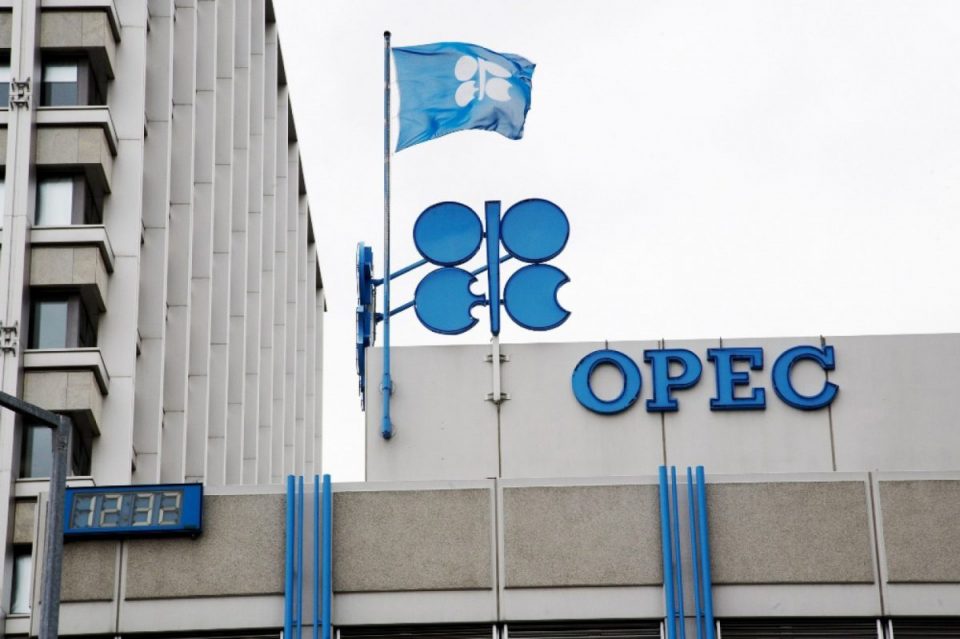The Organisation of Petroleum Exporting Countries (OPEC) after tense discussions at the weekend agreed to increase oil production by 500,000 per day effective January 2021.
The meeting which is the 12th OPEC and non-OPEC Ministerial Meeting (ONOMM) was held via videoconference
The deal to increase oil production is coming days after President Muhamadu Buhari, appealed to OPEC to consider the weight of the responsibility of the nation with 200 million poor people, with severe deficit in infrastructure when sharing oil production cuts.
The World Bank had in July estimated that Nigeria will lose up to 7o per cent of its earnings from crude oil sales in 2020 due to the devastating effect of the COVID-19
Many stakeholders had argued that the need to shore up oil prices which had been below $50 per barrel could compel the cartel to push for more oil product cut. But rather, the outcome of many saw the decision to increase oil production as a surprise.
In light of the current oil market fundamentals and the outlook for 2021, the Meeting agreed to reconfirm the existing commitment under the Declaration of Cooperation (DoC) decision from 12 April 2020, then amended in June and September 2020, to gradually return 2 mb/d, given consideration to market conditions.
Beginning in January 2021, DoC participating countries decided to voluntary adjust production by 0.5 mb/d from 7.7 mb/d to 7.2 mb/d.
Furthermore, DoC participating counties agreed to hold monthly OPEC and non-OPEC ministerial meetings starting January 2021 to assess market conditions and decide on further production adjustments for the following month, with further monthly adjustments being no more than 0.5 mb/d.
The Meeting also agreed to extend the compensation period established from the 11th ONOMM, and later amended in September 2020, for the period of January until the end of March 2021, to ensure full compensation of over production from all DoC participating countries.
OPEC and non-OPEC participating countries appealed to Saudi Arabia’s Minister of Energy HRH Prince Abdul Aziz bin Salman to continue in his role as Chair of the OPEC and non-OPEC Ministerial Meeting. His perseverance, diligence and extraordinary efforts have been highly appreciated by all participating countries and instrumental in helping counter the impacts of the COVID-19 pandemic and in stabilizing the oil market through the successful implementation of DoC objectives.
HRH Prince Abdul Aziz bin Salman accepted the offer to continue in his role as Chairman of the Meeting and vowed to vigorously pursue the sustainable oil market stability desired by both producers and consumers.
HRH Prince Abdul Aziz bin Salman accepted the offer to continue in his role as Chairman of the Meeting and vowed to vigorously pursue the sustainable oil market stability desired by both producers and consumers.
The Meeting also expressed its deep appreciation and gratitude to HE Alexander Novak, Deputy Prime Minister of the Russian Federation, for his exemplary leadership as co-Chair of the ONOMM. The Meeting asked him to continue in this role and thanked him for his tireless efforts and strong support for the DoC during these extremely challenging times. The Meeting also noted the four-year anniversary of the signing of the DoC on 10 December 2016 and commended participating countries for their continued commitment to principles underpinning the DoC.
According to Buhari, countries like Nigeria have peculiar challenges they are facing amidst large population and immense deficit in infrastructure.
OPEC had three weeks ago revised down its expectations for global oil demand for yet another month, as the renewed spike in coronavirus cases in major economies is slowing down the oil demand recovery.
In its closely watched Monthly Oil Market Report (MOMR), OPEC cut its global oil demand forecast for this year by 300,000 barrels per day (BPD) compared to last month’s estimate, and now sees global oil demand at slightly above 90.0 million BPD this year, down by 9.8 million BPD compared to 2019.




